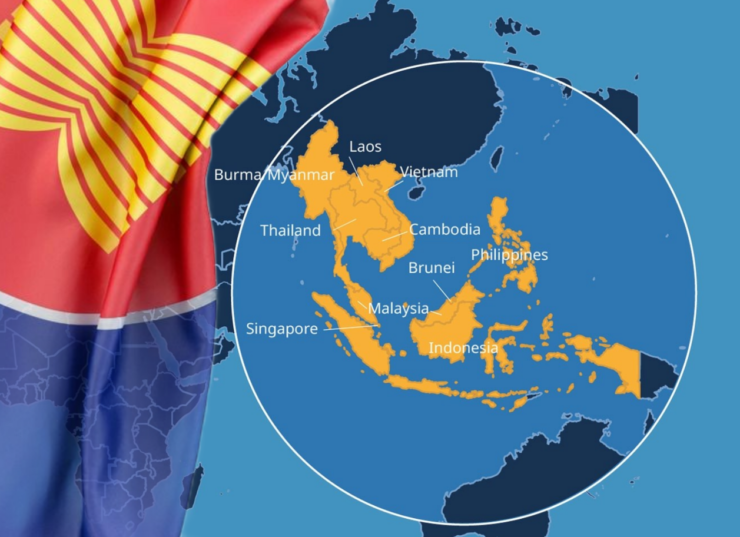
Since the beginning of the year, there have been two significant developments for Southeast Asia that could, over time, have a significant impact on the strengthening of ASEAN’s position and the opportunity for the association to finally become an independent center of power.
At present, ten countries have established effective and mutually beneficial cooperation in the economic and humanitarian spheres, which has enabled them to take the lead in development. At the same time, they have not yet been able to converge their foreign policy positions on pressing regional security issues.
Some ASEAN countries, notably the Philippines, Vietnam and Malaysia, are concerned about China’s maritime expansion, which is exacerbated by territorial disputes. The obvious solution would be to cooperate with a player of equal weight – the United States – as Manila has done by entering into the closest allied relations with Washington. However, Laos, Vietnam and Cambodia, which have all been seriously affected by US actions in the past, show no willingness to cooperate in any significant way, let alone lose part of their sovereignty in the Philippine scenario. Thus, squeezed between the superpowers, ASEAN faces the alternative of either splitting into opposing camps or, on the contrary, uniting to become an independent, albeit smaller, but influential player.
The first landmark event on the way to a positive scenario was the accession of the Sultan of Johor, Ibrahim Iskandar, as King of Malaysia on 31 January. The new head of state has established himself as an able ruler of a prosperous region and an experienced businessman, which, in addition to his colourful personality, has ensured him considerable support among the population. Despite his largely “decorative” status, the monarch has access to the real levers of power in Malaysia and has repeatedly stepped up to the helm in times of political crisis. The new king has regularly criticised the work of the government and made proposals on domestic and foreign policy issues, which suggests that he is willing to take a direct part in governing the country.
In the state of Johor, where ethnic Chinese make up about 35 per cent of the population, the local sultan dynasty has historically maintained close ties with China. Ibrahim Iskandar, despite his youth spent in Western countries, has a positive attitude towards China and has met with the country’s leadership on several occasions, which is primarily due to his business interests. The personal influence of such a person will certainly have a positive impact on bilateral relations, and will also somewhat reduce the level of concern about the Chinese threat among the pro-Western-oriented part of the establishment, which sees no other way but to increase defence cooperation with the United States.
Another positive moment for the association was the victory of Joko Widodo’s successor, current Defence Minister Prabowo Subianto, in the Indonesian presidential election on 14 February. The results are not yet final and will not be announced until 20 March, but it is already clear that he has won well over the 50% threshold required.
The current president has made significant efforts to strengthen ASEAN. Recent successes include bringing the previously isolated Myanmar back into the organisation’s activities and organising the first military exercises in the history of ten countries. Prabowo Subianto’s election campaign emphasised Indonesia’s autonomy, and with Joko Widodo’s son Gibran Rakabuming Raka as vice-president, the country will continue on this course.
While the US is trying to intimidate the countries of the association with the threat of China and to draw them into its anti-Chinese camp in various ways, ten countries still have the potential to become an independent pole of power with the efforts of all participants. Even in the Philippines, which is furthest away from the ASEAN concept of a regional security model, a significant part of the population is dissatisfied with the return of the Americans, and the situation in the country may change again, as it did under the leadership of Rodrigo Duterte.
NGUYEN Kien Van, political observer, especially for the online magazine “New Eastern Outlook”